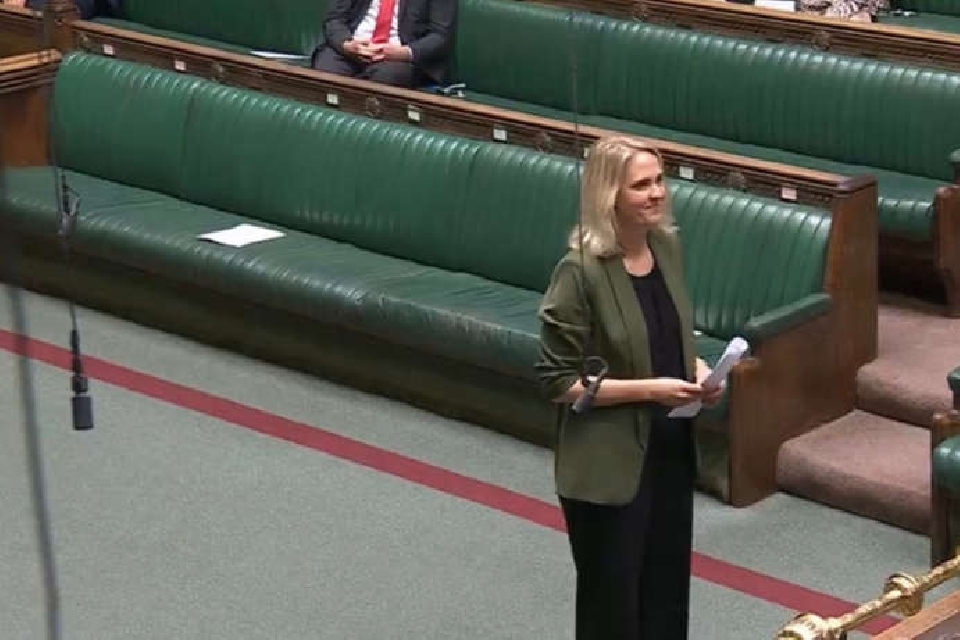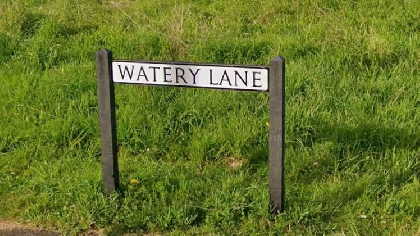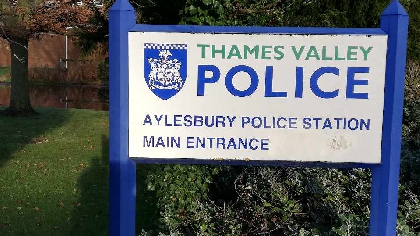
MP for Aylesbury and the villages Laura Kyrke-Smith MP today introduced the Perinatal Mental Health Assessments Bill to Parliament – legislation she is calling "Sophie's Law" in memory of her friend Sophie, who took her own life after the birth of her third child.
The Bill would ensure that every pregnant woman in England receives a structured, evidence-based mental health assessment as part of routine antenatal care, helping to end the current postcode lottery in perinatal mental health support.
Speaking in Parliament today, with Sophie's father Nigel Middlemiss watching from the gallery, Kyrke-Smith highlighted that suicide is the leading cause of death for women in the period from 6 weeks to a year after giving birth – a fact recently reconfirmed by the latest MBRRACE-UK report. One in four women experience mental health difficulties during pregnancy or after birth, yet support remains inconsistent across the country.
"Sophie's death remains a huge sadness in my life and for her family, some of whom were in the gallery today," said Kyrke-Smith. "I didn't know – and many of us don't – that suicide is the leading cause of death for a woman in the period from 6 weeks to a year after giving birth."
The London School of Economics and the Centre for Mental Health estimate that untreated perinatal mental illness costs the UK over £8 billion a year, largely through the long-term impact on children's health, education, and future productivity.
Four pillars of reform
The Bill has four core components:
-
Routine mental health assessments: Every pregnant woman would receive a structured, compassionate mental health assessment during antenatal care, using validated tools and delivered through trauma-informed conversations rather than tick-box exercises.
-
National training standards: GPs, midwives, obstetricians, health visitors and community mental health practitioners would receive consistent training to ask the right questions compassionately and recognise when something isn't right. This training would equip professionals to respond to the specific needs of women from diverse backgrounds.
-
Clear referral pathways: Women would have clear routes into specialist perinatal mental health services when needed, with the Maternal Mental Health Alliance recommending that a specialist perinatal mental health midwife be embedded in every maternity service.
-
Accountability and data collection: NHS England and Integrated Care Boards would be responsible for ensuring local maternity systems introduce the standardised assessment process and capture data through the Maternity Services Data Set, with improved oversight from the Care Quality Commission.
Addressing inequality
Kyrke-Smith emphasised that the current postcode lottery disproportionately affects women who are Black, Asian, young, experiencing domestic violence, or living in poverty.
"Every woman, regardless of age, ethnicity, background or postcode, deserves the same standard of care and the same chance to be mentally well at this time in their life," she said.
Building on government commitments
The Bill builds on the Government's commitment to reorient the health system towards prevention and community care. In the last year, an additional 6,700 mental health professionals have been recruited, £120 million is being invested in 85 dedicated mental health emergency departments, and Best Start Family Hubs are being rolled out to provide families with a single route into support services.
At a roundtable convened by Kyrke-Smith in Parliament in September, bringing together NHS England, the Maternal Mental Health Alliance, the Royal Colleges, parents with lived experience and other experts, the message was united and clear: professionals want to help, but they need structure, time, and training to do it properly.
"I know resources are tight across the NHS," Kyrke-Smith concluded. "But I also know how transformative the relatively modest measures in this Bill could be. It could have made a difference for Sophie – and it still could be for the many women who are struggling with their mental health now, or will do in future."
The Bill is due to have its second reading on 31 October.



 Football Club Marks One-Year Anniversary of Championing Men’s Mental Health
Football Club Marks One-Year Anniversary of Championing Men’s Mental Health
 Food waste recycling expanding to flats in the south of Buckinghamshire
Food waste recycling expanding to flats in the south of Buckinghamshire
 Bucks Olympians going for gold in Italy
Bucks Olympians going for gold in Italy
 Bucks charity launches overnight Hospice at Home service
Bucks charity launches overnight Hospice at Home service
 New double yellows for street
New double yellows for street
 Amnesty for blank guns now classed as illegal
Amnesty for blank guns now classed as illegal
 Aylesbury Arm of canal re-opened
Aylesbury Arm of canal re-opened
 Bucks community groups eligible to benefit from £200,000 seized from criminals
Bucks community groups eligible to benefit from £200,000 seized from criminals











